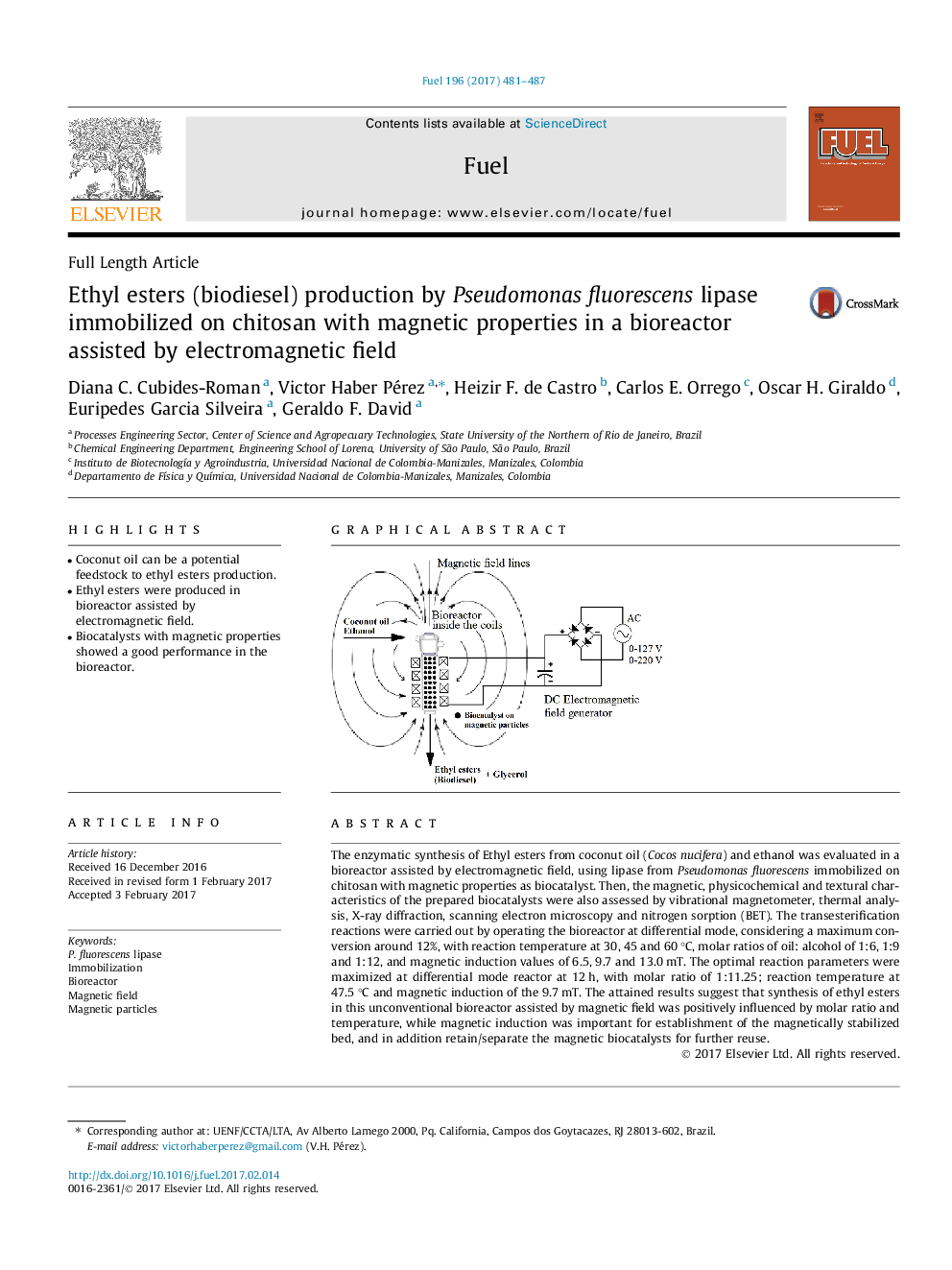| Article ID | Journal | Published Year | Pages | File Type |
|---|---|---|---|---|
| 6475107 | Fuel | 2017 | 7 Pages |
â¢Coconut oil can be a potential feedstock to ethyl esters production.â¢Ethyl esters were produced in bioreactor assisted by electromagnetic field.â¢Biocatalysts with magnetic properties showed a good performance in the bioreactor.
The enzymatic synthesis of Ethyl esters from coconut oil (Cocos nucifera) and ethanol was evaluated in a bioreactor assisted by electromagnetic field, using lipase from Pseudomonas fluorescens immobilized on chitosan with magnetic properties as biocatalyst. Then, the magnetic, physicochemical and textural characteristics of the prepared biocatalysts were also assessed by vibrational magnetometer, thermal analysis, X-ray diffraction, scanning electron microscopy and nitrogen sorption (BET). The transesterification reactions were carried out by operating the bioreactor at differential mode, considering a maximum conversion around 12%, with reaction temperature at 30, 45 and 60 °C, molar ratios of oil: alcohol of 1:6, 1:9 and 1:12, and magnetic induction values of 6.5, 9.7 and 13.0 mT. The optimal reaction parameters were maximized at differential mode reactor at 12 h, with molar ratio of 1:11.25; reaction temperature at 47.5 °C and magnetic induction of the 9.7 mT. The attained results suggest that synthesis of ethyl esters in this unconventional bioreactor assisted by magnetic field was positively influenced by molar ratio and temperature, while magnetic induction was important for establishment of the magnetically stabilized bed, and in addition retain/separate the magnetic biocatalysts for further reuse.
Graphical abstractDownload high-res image (135KB)Download full-size image
